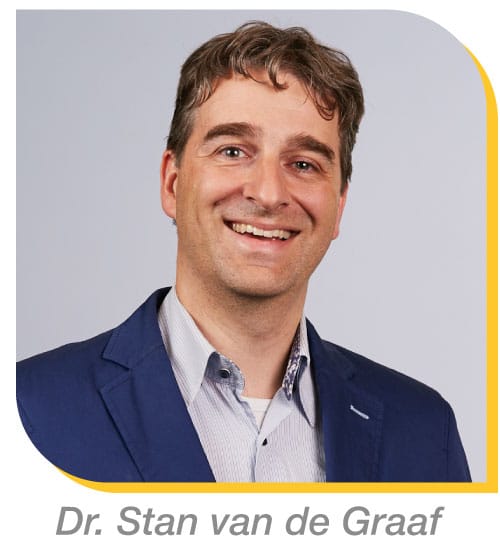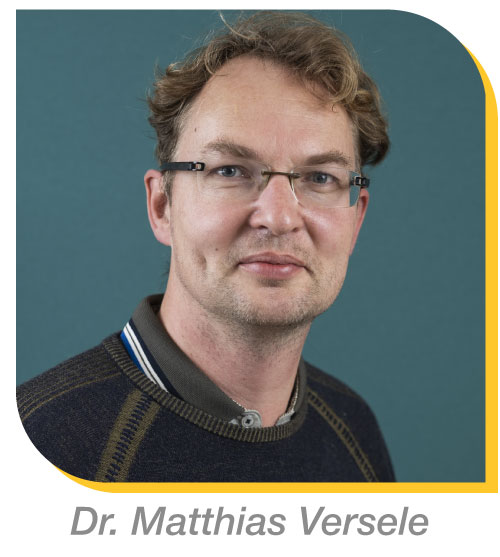TUCSON, Ariz, August 19, 2025 — Critical Path Institute’s (C-Path) Translational Therapeutics Accelerator (TRxA) has awarded a $473,000 grant to support the development of a novel small molecule therapy for primary sclerosing cholangitis (PSC)—a rare, chronic cholestatic liver disease with no approved or marketed treatments. The funding has been awarded to Dr. Stan van de Graaf at Amsterdam University Medical Center in the Netherlands (Amsterdam UMC) and Dr. Matthias Versele at the Centre for Drug Design and Discovery (CD3) at KU Leuven in Belgium.
PSC is a progressive liver disease characterized by inflammation and fibrosis of the bile ducts, leading to bile flow obstruction, bile acid accumulation, and, ultimately, liver failure. When bile flow is disrupted, toxic bile acids build up in the liver, triggering tissue damage, inflammation, and scarring. Liver transplantation remains the only treatment option—yet at least 25% of patients experience disease recurrence after transplant.
Patients often endure debilitating symptoms such as itching, fatigue, pain, and jaundice, and roughly two-thirds of individuals with PSC also have inflammatory bowel disease (IBD). The condition significantly increases the risk of gastrointestinal cancers, including a 5-fold increase in colorectal cancer and a 400-fold increase in cholangiocarcinoma, a highly aggressive bile duct cancer that often evades early detection.

The funded project builds on a breakthrough concept first proposed by Dr. Van de Graaf, who was the first to identify inhibition of the sodium-taurocholate co-transporting polypeptide (NTCP) as a viable therapeutic strategy for cholestatic liver diseases. His team provided the first proof-of-concept data showing that NTCP inhibition not only reduces hepatic bile acid accumulation, but also exerts beneficial effects in experimental models of colitis—a particularly promising result given the high co-occurrence of IBD in PSC patients.
This is a devastating disease with no cure and no approved therapies,” said Van de Graaf, professor in Experimental Hepatology and Metabolism at Amsterdam UMC. “By targeting NTCP, we should prevent bile acid buildup in the liver and reduce disease progression. We’re grateful to TRxA for helping us move this science from bench to bedside.”

Dr. Matthias Versele, Executive Director of Drug Discovery Biology at CD3, added, “This collaboration enables us to progress our initial discoveries into a drug candidate using state-of-the-art development tools. TRxA’s support is highly valued for bringing this new therapeutic concept closer to clinical testing.”
The TRxA grant will fund compound optimization, in vitro and in vivo pharmacology studies, and early-stage safety assessments—key steps needed to prepare for future regulatory submissions and clinical evaluation.
“This project embodies the scientific innovation and clinical relevance that TRxA was created to support,” said Dr. Maaike Everts, Executive Director of TRxA. “We’re proud to invest in the pioneering work of Dr. Van de Graaf and Dr. Versele, and to help accelerate a much-needed therapy for PSC.”
Launched by C-Path, TRxA provides funding and expert guidance to help academic investigators advance innovative therapies through early translational development without requiring them to give up ownership of their discoveries.
For more information about TRxA, visit https://c-path.org/trxa.
About Critical Path Institute
Founded in 2005, as a public-private partnership in response to the FDA’s Critical Path Initiative, Critical Path Institute® (C-Path) celebrates its 20th anniversary as a vital, independent, nonprofit. C-Path’s mission is to lead collaborations that advance better treatments for people worldwide. Globally recognized as a pioneer in accelerating drug development, C-Path has established numerous international consortia, programs and initiatives that currently include more than 1,600 scientists and representatives from government and regulatory agencies, academia, patient organizations, disease foundations and pharmaceutical and biotech companies. With dedicated team members located throughout the world, C-Path’s global headquarters is located in Tucson, Arizona and C-Path’s Europe subsidiary is headquartered in Amsterdam, Netherlands. For more information, visit c-path.org.
About TRxA
Critical Path Institute’s Translational Therapeutics Accelerator (TRxA) is a global drug accelerator focused on supporting academic scientists in advancing novel therapeutics from university-based labs to drug development pipelines of pharmaceutical companies and, ultimately, the clinic. As a nonprofit neutral convener of patient groups, academia, pharmaceutical companies and regulatory agencies, C-Path brings a breadth of scientific and drug development planning not available in other accelerator programs. TRxA is uniquely situated to leverage the expertise available through C-Path’s >20 disease-based consortia, as well as regulatory expertise and project management, to empower academic investigators to succeed in bringing safe and effective treatments to patients. For more information, visit c-path.org/trxa or email trxa@c-path.org.
About CD3
The Centre for Drug Design and Discovery (CD3) is an investment fund and drug discovery center created by KU Leuven to drive the translation of innovative research into clinical applications. It provides expert drug discovery capabilities and financial support to academic research groups and small companies to help develop groundbreaking medicines. CD3 has established numerous collaborations with academic institutions, leading to successful partnerships with pharmaceutical companies and has co-created several early-stage biotech companies. For more information, please visit www.cd3.be.
About Amsterdam UMC
Amsterdam UMC is a leading medical center with over 16,000 employees that combines complex high-quality patient care, innovative scientific research, and education of the next generation health care professionals. Amsterdam UMC has arisen from the merger of Amsterdam’s two academic hospitals, the Academic Medical Center (AMC) and the VU University Medical Center (VUmc) in 2018. Amsterdam UMC represents the medical faculties of the two universities associated: the University of Amsterdam and the Vrije Universiteit Amsterdam. Amsterdam UMC is focused on a future where diseases can be prevented and where patients receive the best treatments. The emphasis is on the complex treatment of rare disorders. Pre-clinical research on gut and liver diseases of the Amsterdam UMC is concentrated in the Tytgat Institute for Liver and Intestinal Research, headed by prof. Dr. Stan Van de Graaf.
Media Contacts:
Roxan Triolo Olivas
C-Path
520.954.1634
rolivas@c-path.org
Kissy Black
C-Path
615.310.1894
kblack@c-path.org


